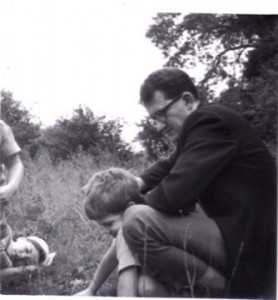
It was such a joy to wake to the dawn chorus. I lay in bed listening to the different tweets and twitters marvelling at birdsong – then I noticed the time. What? Four a.m.? That is not fair! Another three hours at least before I am due to get up.
I was brought up to rise with the dawn – which worked well in an African country where the sunrise was always around 6am. However, it is no use relying on the sun in a northern hemisphere country like England, where daybreak may vary from four o’clock to nearly eight o’clock. When working I always set my alarm clock although I seldom needed it – usually being awake before it rang.
Besides rising with the dawn we also took a siesta after lunch, even my school timetabled an after-lunch rest. The boarders retired to their beds and day-boarders like me lay on blankets on the concrete corridor floor. This was a period of enforced idleness and complete silence. It was my saving! I always went right off to sleep, with my hands under my head to cushion it.
Until I researched narcolepsy, it never occurred to me that other people did not dream the moment they nodded off. Nor did I realise that my odd habit of occasionally waking bolt upright five minutes after falling asleep is because of narcolepsy – which may cause the sleeper to ‘spontaneously awake’. So what about my two o’clock in the morning wanderings? Is narcolepsy to blame? Or my ancestors?
To quote ‘Slumberwise’ (click here) <<The existence of our sleeping twice per night was first uncovered by Roger Ekirch, professor of History at Virginia Tech.
His research found that we didn’t always sleep in one eight-hour chunk. We used to sleep in two shorter periods, over a longer range of night. This range was about 12 hours long, and began with a sleep of three to four hours, wakefulness of two to three hours, then sleep again until morning.
References are scattered throughout literature, court documents, personal papers, and the ephemera of the past. What is surprising is not that people slept in two sessions, but that the concept was so incredibly common. Two-piece sleeping was the standard, accepted way to sleep. >>
And to think that I thought that nocturnal wandering was simply due to age and a full bladder!
Anyway, here are five tips which help me to get a good night’s sleep:
1) Make bedroom a peaceful place free from TV, iPads and such like.
2) Try to keep regular hours, retiring and rising at much the same times
3) Sleep in a darkened room – I wear an eye-mask.
4) No coffee or tea after 7pm – only water.
5) Open window a little for fresh air.
Sleep tight! Hope the bugs don’t bite!
 Follow
Follow
Leave a Reply